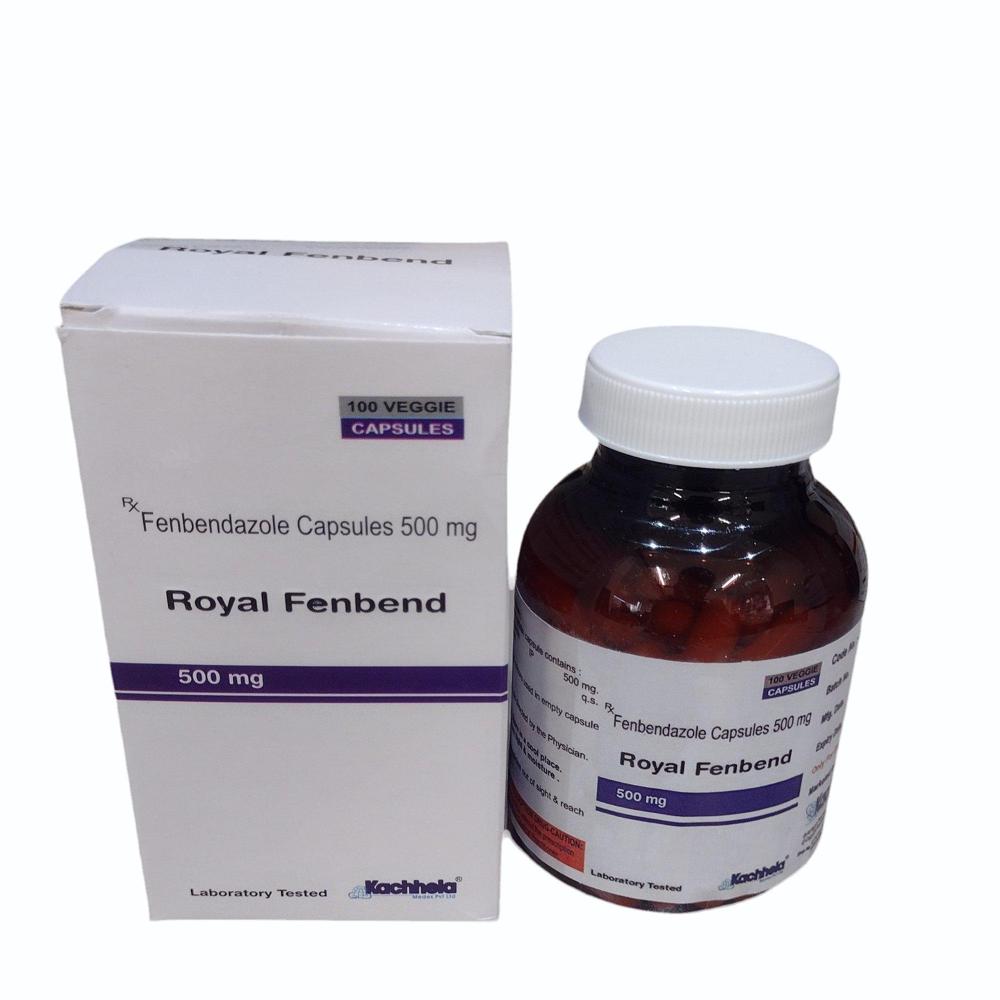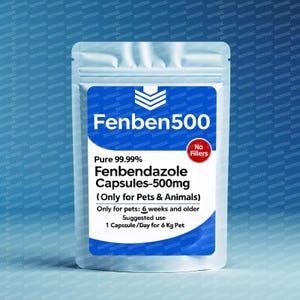fenbendazole 222: Common Owner Concerns Answered
Wiki Article
Discovering the Mechanisms Behind Fenbendazole and Its Effect on Pet Health
Fenbendazole is a commonly made use of anthelmintic understood for its performance against numerous parasites. Its main mechanism includes the restraint of microtubule formation, which disrupts crucial procedures in these pathogens. Beyond its antiparasitic homes, fenbendazole likewise shows up to boost immune reactions and has anti-inflammatory benefits. Recognizing these multifaceted results might disclose new applications for pet health and wellness. Inquiries continue to be concerning its complete capacity and safety account.The Pharmacokinetics of Fenbendazole
The pharmacokinetics of fenbendazole, an extensively made use of anthelmintic in veterinary medication, includes the study of its absorption, circulation, metabolism, and discharging within pet systems. After management, fenbendazole is quickly absorbed from the intestinal system, with peak plasma focus taking place within hours. Its distribution is influenced by aspects such as cells binding and lipid solubility, permitting it to penetrate different tissues successfully. The drug undergoes substantial metabolic process largely in the liver, where it is exchanged energetic and inactive metabolites. These metabolites play a function in the medication's general effectiveness and security profile. Excretion occurs primarily with feces, with a smaller proportion eliminated using pee. The half-life of fenbendazole varies amongst varieties, which impacts application routines. Understanding these pharmacokinetic buildings is essential for enhancing its therapeutic usage and guaranteeing reliable bloodsucker control in veterinary practices.Devices of Action Versus Parasites
Fenbendazole applies its antiparasitic effects largely with the restraint of microtubule formation in bloodsuckers. This disruption influences their structural honesty and cellular features, resulting in impaired power metabolism. As an outcome, the drug successfully compromises the survival and reproduction of numerous parasitic microorganisms.Inhibition of Microtubule Formation
Restraint of microtubule formation stands for an important system where specific anthelmintic agents, including fenbendazole, apply their impacts on bloodsuckers. Fenbendazole binds to tubulin, a healthy protein that creates microtubules, interrupting the polymerization procedure essential for microtubule assembly. This disturbance impairs crucial cellular functions, including mitosis, intracellular transport, and structural stability. As microtubules play a crucial role in maintaining the shape and feature of parasitic cells, their inhibition leads to cell cycle arrest and ultimate death of the bloodsucker. This system is specifically efficient versus nematodes, as their reliance on microtubules for mobility and nutrient absorption makes them at risk to fenbendazole. The restraint of microtubule formation is a critical element of fenbendazole's therapeutic efficiency in veterinary medication.Interruption of Power Metabolic Process
Interrupting energy metabolism is an additional important device by which fenbendazole targets parasitical microorganisms. This anthelmintic alters the energy manufacturing pathways within parasites, largely affecting their ability to produce adenosine triphosphate (ATP) By hindering glucose uptake and disrupting mitochondrial feature, fenbendazole restrictions the power resources necessary for the survival and recreation of these organisms. Therefore, parasites become progressively at risk to environmental anxieties and immune actions. The interference in energy metabolism not just influences the bloodsuckers directly but also reduces their capability to take in nutrients, even more impairing their growth - 222 mg. In general, the disruption of energy metabolic rate stands for a fundamental element of fenbendazole's effectiveness versus various parasitical infections, adding substantially to improved animal health outcomesPotential Negative Effects and Safety And Security Profile
The possible side impacts and safety profile of fenbendazole warrant careful factor to consider, especially in veterinary applications. While generally considered as safe, some animals may experience adverse reactions, consisting of intestinal disruptions such as vomiting and looseness of the bowels. Furthermore, neurological signs, although rare, have actually been reported in delicate people, highlighting the need for surveillance throughout treatment.
Fenbendazole's safety in various varieties, consisting of pet dogs and cats, has actually been recorded, yet dosage and period of treatment have to be thoroughly taken care of to reduce threats. Pregnant or breast feeding animals might also call for special focus, as the effects on developing unborn children or nursing spawn are not totally comprehended.
Regular veterinary appointments can aid mitigate potential adverse effects and ensure the drug is provided appropriately. While fenbendazole is an effective anthelmintic representative, alertness concerning its side impacts is important for maintaining pet health and wellness.
Fenbendazole's Influence on Immune Feature
Fenbendazole has actually been noted for its potential to regulate immune system responses in pets. Its anti-inflammatory properties might add to improved immune function, giving a twin advantage in handling health (fenbendazole capsules). Understanding these results is necessary for reviewing fenbendazole's role in vet medicationBody Immune System Modulation

Anti-inflammatory Properties
Anti-inflammatory impacts stand for a considerable element of fenbendazole's impact on immune function. Research indicates that fenbendazole might lower the manufacturing of pro-inflammatory cytokines, which are critical in moderating inflammatory feedbacks. By modulating these cytokines, fenbendazole can possibly ease inflammation-related problems in animals. This anti-inflammatory activity not just aids in handling signs connected with different diseases yet additionally improves general immune system efficacy. In addition, its capability to promote a balanced immune response aids protect against excessive inflammatory damage, which can lead to persistent health and wellness issues. Fenbendazole's duty in swelling monitoring underscores its relevance in veterinary medication, providing a dual benefit of antiparasitic action and immune system assistance for animal health.Applications Past Typical Parasitic Infections
While mainly acknowledged for its efficiency versus different parasitic infections, fenbendazole has gathered attention for prospective applications past this standard range. Current researches recommend that fenbendazole may have beneficial effects on cellular health and immune action, making it an appealing candidate a knockout post for managing other health and wellness problems in animals. For instance, its reported anti-inflammatory buildings might give relief for pets struggling with persistent inflammatory diseases. Additionally, some research shows that fenbendazole could contribute in sustaining the total wellness of animals by boosting vitamins and mineral absorption and intestinal health. In addition, its possible as a complement therapy in cancer therapy has actually triggered interest, as initial findings recommend it might prevent lump cell development in specific contexts. These varied applications highlight fenbendazole's flexibility, motivating additional expedition right into its diverse advantages for animal health and wellness beyond its conventional use as a deworming agent.Future Research Instructions and Effects for Pet Wellness
The expedition of fenbendazole's prospective applications has actually opened new avenues for research study targeted at improving animal health. Future studies could concentrate on its performance versus a broader range of microorganisms, consisting of microorganisms and infections, thus increasing its role in veterinary medicine. The effects of fenbendazole's devices, such as its effect on immune modulation, warrant even more investigation to comprehend exactly how it can strengthen general wellness in different species.Furthermore, research study may explore excellent does and formulations to optimize efficacy while reducing possible side effects. Checking out fenbendazole's synergistic impacts with various other medications could bring about much more reliable navigate here treatment methods. Longitudinal studies assessing long-term results in pets treated with fenbendazole might give valuable insights right into its security and efficiency. In general, the continued expedition of fenbendazole offers promising capacity to improve animal health, necessitating a collaborative strategy amongst scientists, vets, and pharmaceutical programmers to promote developments in this location.
Frequently Asked Inquiries
Can Fenbendazole Be Utilized in Livestock for Parasite Avoidance?
The question of whether fenbendazole can be made use of in animals for bloodsucker prevention is relevant, as producers seek reliable treatments (fenbendazole 222). Research study shows it might supply benefits, yet appropriate standards and veterinary advice are essential for secure usageWhat Is the Suggested Dosage of Fenbendazole for Various Pets?

Exist Any Type Of Understood Drug Interactions With Fenbendazole?
Current knowledge indicates that fenbendazole might connect with particular medications, potentially affecting their efficacy or metabolism. Vet specialists recommend speaking with a vet to examine private animal cases and determine any kind of their website feasible interactions before administration.How Does Fenbendazole Compare to Various Other Antiparasitic Drugs?
Fenbendazole is usually contrasted to other antiparasitic medications based upon efficiency, range of activity, and safety profiles. It is preferred for its performance against a wide variety of parasites while generally showing very little negative effects in pets.Is Fenbendazole Effective Against Viral or Microbial Infections in Pets?
The performance of fenbendazole against viral or bacterial infections in pets continues to be unverified. Study primarily concentrates on its antiparasitic residential or commercial properties, with restricted proof supporting any type of function in dealing with non-parasitic infections in vet medicine.Report this wiki page